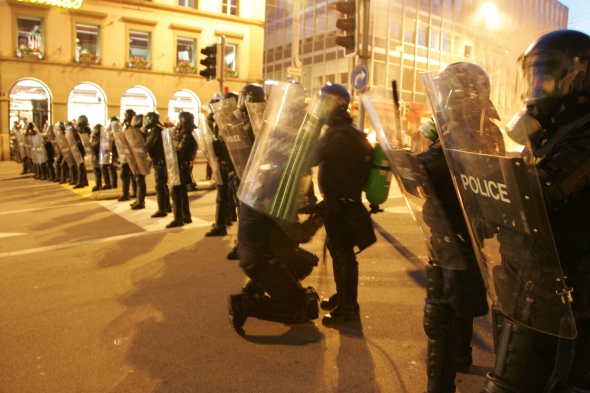The Social Civil War
The past was dead, the future was unimaginable. — George Orwell, 1984
From Wikipedia:
There are many local historians who have their theories on when or why the Social Civil War broke out from within the sprawling mix of towering business-commercial districts and urban decay that was the megalopolis of Metro Manila in 2035.
However, the Social Civil War started seven years before the actual conflict with a crowd-sourced civil disobedience movement created by a hacker group called Incognito Army, whose roots can be traced to the early 2000 Anonymous and Occupy groups. With the help of the outlaw Ululz Network and young enthusiastic recruits dubbed ‘trolls’, they spread throughout the interconnected cities of the Philippine capital.
President Dante Marcos IV’s so-called Civic Republic — which supposedly cited as influence the 1970s’ Bagong Lipunan — answered these acts of civil disobedience with the Youth Patrol Act of 2032, also known as the Pinoy Big Brother Law …
[PAGE CANNOT BE FOUND]
Just as he lost the Internet signal, 13-year-old Rey Agustin heard the sound of the whistling birds and keyed his WiFi off on his cheap, China-made tablet. The anonymous whistling was a code that everyone recognized to mean that local authorities were nearby.
From where he sat on the sidewalk beside The Philippine Star building in the busy Port Area of the City of Manila, he could see a roving armored police car. These patrols were supposed to detect not only illegal WiFi signals but also those accessing proscribed free sites like Wikipedia.
Rey tried to look bored: a first-year high school student in public school uniform waiting for his father— a journalist— to wrap up his work at the the Star. He supposed he could have just accessed the WiFi from the relative safety of the press office.
However, the Internet signals emanating from the sprawling palengke around the newspaper company was stronger, faster — and in their multitudes. The Muslim traders, with their stalls at the market place and who dealt directly with the ships moored at the port for their goods, preferred to use their own makeshift WiFi modems. Sometimes it got to the point that their stronger signals would overpower the weaker one in the Star building.
With the police car gone, he turned his WiFi on again and immediately received a message notification: the “I” logo reminiscent of the power button and was the symbol of the Incognito Army. He read the message: “Steal fish from a passing truck now and throw it at the police car.”
He smiled and stood up. This was going to be fun.
(First published in The Philippine Star, 22 June 2013.)























Leave a comment